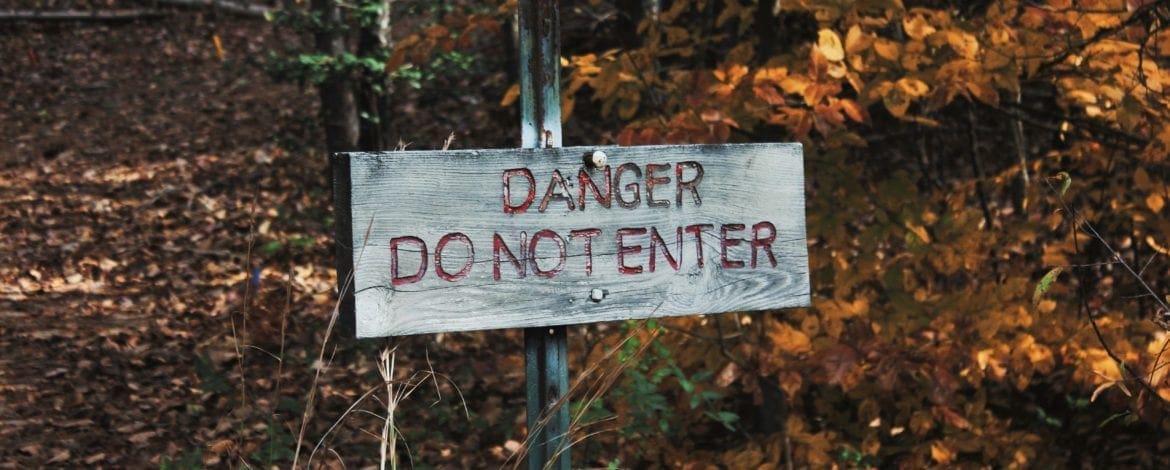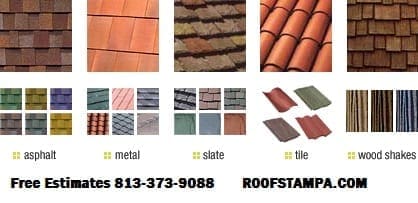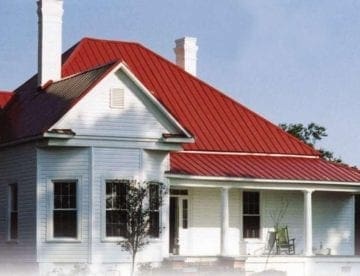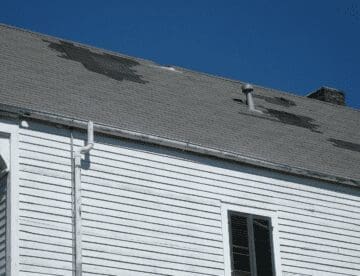During the hot summer months in the American Southeast, storms are almost a daily occurrence. Roof damage caused by strong winds, hurricanes, and severe storms requires urgent repair so your roof can continue to protect everyone and everything inside your home. But, urgency and pressure to repair your roof as soon as possible can make you less careful and prone to mistakes. And, some roofers aren’t shy when it comes to taking advantage of such situations. To help you avoid roofing scammers, we’ll talk about the five most common roofing scams and what you can do to avoid them.
1. Storm Chasers
During hurricane season in the Southeast, especially in Florida, storm chasers circle neighborhoods, hoping to find a house that recently got hit by a big storm. These contractors, usually from out of town, rarely have the required roofing licenses and lack the adequate skills to perform a quality roof repair service.
They’ll come directly to your door, claiming that they noticed damage on your roof. In many cases, they’ll also offer a free roof inspection. This may sound enticing, but it’s not worth the risk. While it may be true that your roof needs a fix-up, remember one thing. Reputable and trustworthy roofing companies are already busy with customers calling them daily during this time. They don’t have the time to be driving around and asking people for their business.
If you suspect that your roof might be damaged, you can do a quick checkup yourself. Look for stains in the attic, blistering or peeling paint, or stains on interior ceilings and walls. Do a ground check of the roof and see if you can spot any missing or cracked shingles. If you can’t find any visible damage, but you’re still wary of your roof’s structural integrity, research contractors online and find a reliable local roofing business you can trust.
2. Deposit Payment Scams
Most roofing contractors require a deposit between 15 and 30% of what the entire job would cost. With this being the case, some scammers have found a way to take advantage of the system. They ask homeowners to pay for parts and labor upfront, and then never call them back again.
Roofing contractors that pressure you to make a large deposit upfront, or even worse, make the entire payment upfront, most likely don’t intend to go through with the project. To prevent losing money in such a scam, don’t make any deposit payments unless you’ve agreed on every crucial detail, and you have all of the necessary legitimate information, with an estimated date of project completion.
3. Unrealistically Low Starting Bids in Common Roofing Scams
As a homeowner, you need to be sure that every investment in your property is worthwhile. You want to make sure that you know the exact value and cost of a roof repair or replacement. Some roofers tend to scam homeowners out of their money by overcharging them when bidding. That said, companies that go in a completely different direction can often scam you out of even more of your hard-earned money.
A popular tactic among scammers is to trick homeowners by making fluctuating bids. They start with a relatively low first bid to lure you in. When the project begins, “unseen” problems and costs start showing up. In the end, the job can end up costing you more than it would have, had you gone with a trusted local company that made you a transparent up-front bid.
4. Contractor Inflicted Roof Damage
These types of scams often go hand-in-hand with storm chaser scams. A roofer may come to your door, saying he spotted the damage from the street. After that, he says he would like to inspect it up close. The problem with this is that, while he’s on the top, pretending to be examining the roof, he’s actually creating damage in places that were sound before he went up there.
There have been many cases where the contractor deliberately caused damage while on the homeowner’s roof, to make more money off of them. While we discourage you from going on the roof, we should also warn you not to let unfamiliar roofers on your property. Moreover, don’t let any roofing contractor go up on your roof before you’re sure of their reputation, no matter how experienced and qualified they claim to be.
5. Unlicensed Contractors
Regulations for roofing contractors vary from state to state. There are almost a dozen US states that don’t require a roofing license. Florida isn’t one of those states. Every roofing contractor in Florida is required to have a valid license. Make sure to ask any contractor you contact for proof of their license. If you feel that they are trying to avoid the topic and rush you into a project, avoid working with them. Understandably, you want to fix the damage as soon as possible. You don’t want to let anyone pressure you into making such an important and pricey decision. You need enough time to do your research.
When researching your next roofing contractor, pay attention to the little details. Reputable companies often have plenty of reviews and accreditation from sites such as the BBB. This information, as well as any other certificates or credentials you can find on the contractor’s website, can help you make an educated decision on whether a particular contractor is worth your time and money.
Common Roofing Scams: A Takeaway
Roof repair is a serious process that should be handled professionally and responsibly. As a family-owned business with over 45 years of experience, we take great care of our every customer. Our reputation is critical to us, and we put a lot of effort into ensuring maximum customer satisfaction. We’re always happy to work with new clients. If you want to get a free estimate for your roof repair or replacement project, contact us today. Call us at 813-373-9088 or fill out our online form.




